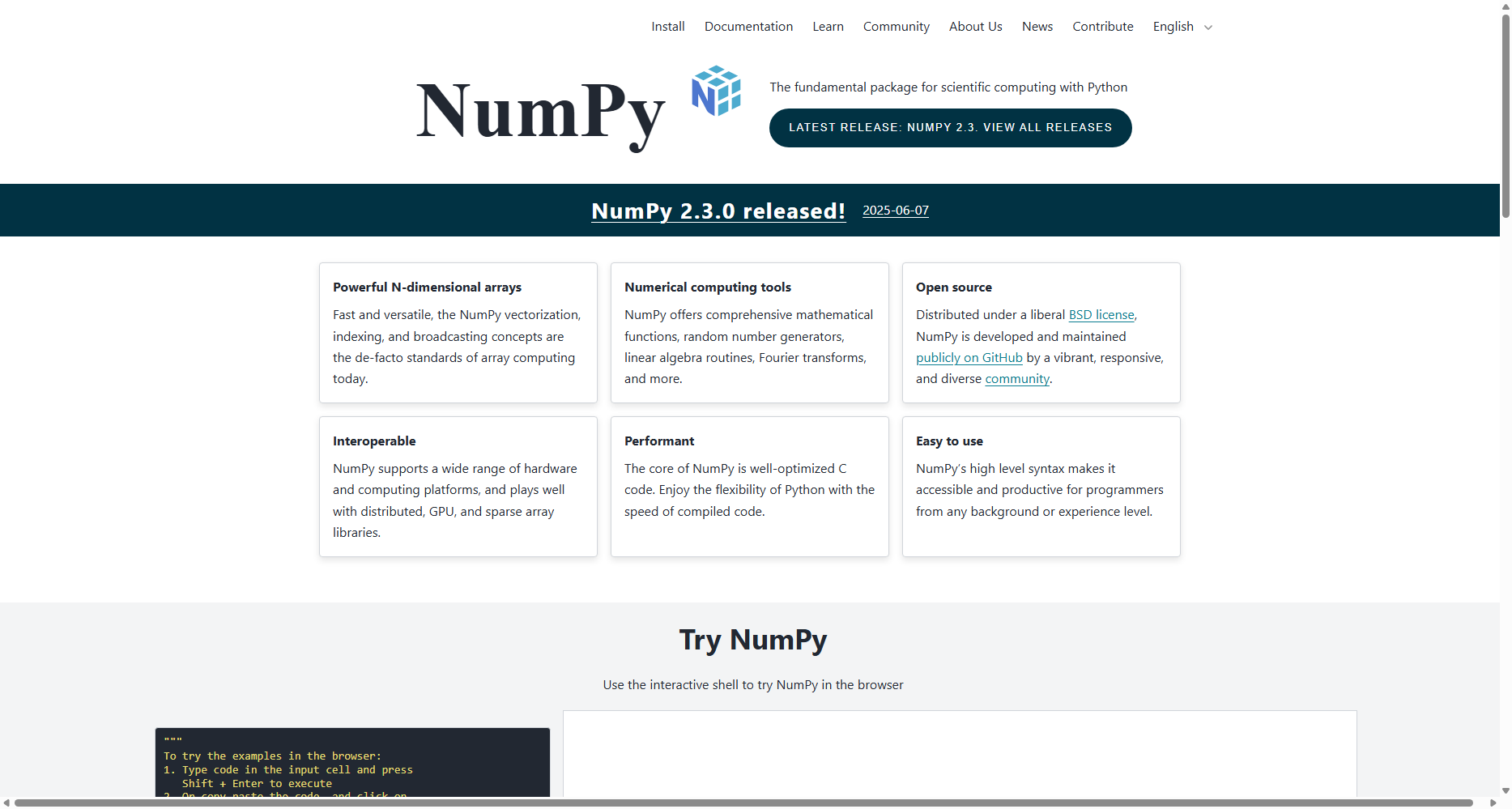










NumPy: The Fundamental Package for Scientific Computing with Python
NumPy is a powerful and essential package for numerical and scientific computing with Python. This open-source library is renowned for its efficiency and ease of use, making it a cornerstone for anyone working in data analysis, scientific research, and related fields.
Key Features and Benefits
-
Powerful N-dimensional Arrays: NumPy provides comprehensive support for handling large, multi-dimensional arrays and matrices, along with an extensive collection of high-level mathematical functions to operate on these arrays.
-
Numerical Computing Tools: It includes tools for a wide range of mathematical operations, random number generation, linear algebra, Fourier transforms, and more, contributing to its versatility.
-
Interoperability: NumPy is well-suited for a wide range of computational environments and is compatible with distributed computing, GPU, and sparse array libraries, facilitating its integration into broader workflows.
-
Performance: Leveraging optimized C code at its core, NumPy offers the speed of compiled code while maintaining the flexibility of Python, making it a performant choice for intensive computation tasks.
-
Open Source and Community-driven: Distributed under the liberal BSD license, NumPy is maintained on GitHub by a responsive and diverse community, ensuring ongoing improvements and support.
-
Ease of Use: NumPy's high-level syntax is user-friendly, making it accessible to programmers with varying experience levels, from beginners to experts.
Getting Started with NumPy
Users are encouraged to experiment with NumPy directly in their web browser using the interactive shell available on the website. This allows newcomers and experienced users alike to quickly try out examples and understand how NumPy can fit into their projects.
Booming in popularity and continuously evolving, NumPy remains an indispensable library in the Python ecosystem, essential for performing high-performance numerical computations.
